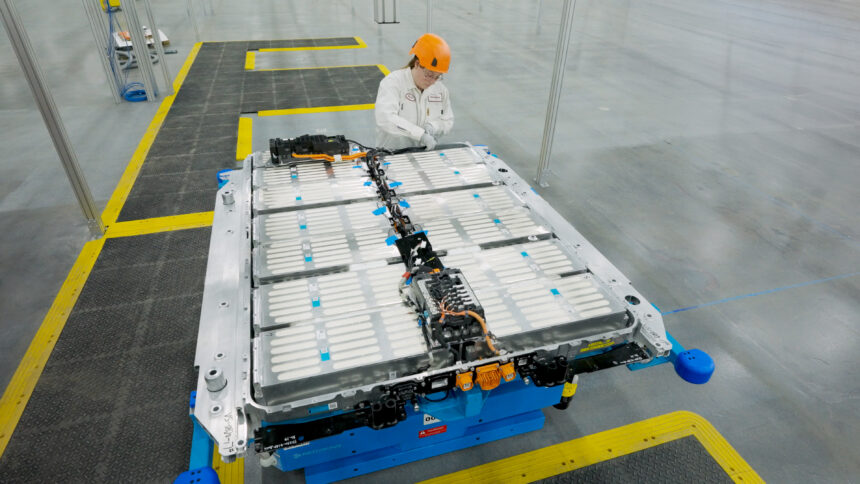Une ombre d’incertitude plane sur les ambitieux projets de fabrication de véhicules électriques de Honda en Ontario, alors que le constructeur japonais a annoncé un retard important dans son calendrier d’investissement de 15 milliards de dollars. Cette évolution survient dans un contexte de refroidissement de la demande mondiale pour les véhicules électriques et soulève des questions quant à la position émergente du Canada dans la chaîne d’approvisionnement nord-américaine des VÉ.
Honda Motor Co. a confirmé mardi qu’elle reporterait certains éléments de son expansion précédemment annoncée à Alliston, en Ontario, citant “l’évolution des conditions du marché” et une adoption par les consommateurs plus lente que prévu des véhicules électriques en Amérique du Nord. L’entreprise avait initialement prévu de commencer la production de véhicules entièrement électriques dans l’usine modernisée d’ici 2028, créant environ 1 000 nouveaux emplois dans le secteur manufacturier.
“Nous restons engagés envers nos opérations canadiennes et la transition vers l’électrification,” a déclaré la porte-parole de Honda Canada, Mélanie Richmond, dans un communiqué. “Cependant, les réalités actuelles du marché nous obligent à ajuster notre calendrier pour assurer la durabilité à long terme.”
Cette annonce représente un revers significatif pour la stratégie canadienne de fabrication de VÉ, que les gouvernements fédéral et provinciaux ont défendue comme une pierre angulaire de l’avenir industriel du pays. Le gouvernement Trudeau s’était engagé à verser environ 2,5 milliards de dollars en incitatifs à la production et en allègements fiscaux pour garantir l’investissement de Honda, le positionnant comme une victoire économique transformatrice pour le secteur manufacturier de l’Ontario.
Le premier ministre de l’Ontario, Doug Ford, a tenté de minimiser les inquiétudes lors d’une conférence de presse à Toronto, insistant sur le fait que le projet reste “entièrement intact” malgré le calendrier révisé. “Honda nous a assuré qu’ils viennent toujours. Il s’agit simplement d’un ajustement temporaire,” a déclaré Ford. “Les fondamentaux de notre économie provinciale demeurent solides.”
Cependant, les analystes de l’industrie soulignent des préoccupations plus larges concernant le rythme d’adoption des VÉ en Amérique du Nord. Les données récentes d’IHS Markit montrent que la croissance des ventes de VÉ a ralenti à 14 % d’une année sur l’autre au premier trimestre 2025, comparativement à une croissance de 45 % durant la même période en 2024.
“Les constructeurs automobiles recalibrent leurs plans de transition vers les VÉ à tous les niveaux,” a déclaré Flavia Tata Nardini, analyste principale du secteur automobile chez BloombergNEF. “Le retard de Honda reflète une préoccupation à l’échelle de l’industrie selon laquelle la demande des consommateurs ne s’est pas matérialisée aussi rapidement que prévu, particulièrement dans les segments sensibles aux prix où Honda est en concurrence.”
Cette évolution a provoqué des réactions politiques immédiates à Ottawa, où les critiques de l’opposition ont remis en question les engagements financiers massifs du gouvernement envers le secteur des VÉ. Le critique conservateur de l’industrie, Rick Perkins, a qualifié le retard de “prévisible” et a exhorté à une réévaluation des “incitatifs aux entreprises financés par les contribuables sans garanties adéquates

























